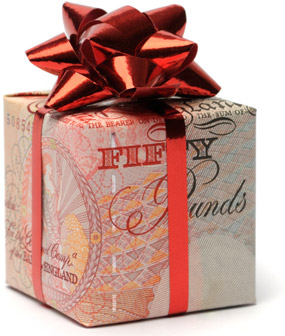 The nil rate IHT threshold is currently £325,000, and will remain at this figure until 2015. If you leave behind anything worth more than this, the tax will be charged at 40% on anything extra.
The nil rate IHT threshold is currently £325,000, and will remain at this figure until 2015. If you leave behind anything worth more than this, the tax will be charged at 40% on anything extra.
However, if you are married or in a civil partnership, you and your spouse can combine your thresholds for a total of £650,000 and tax will not be charged unless the surviving partner leaves behind anything worth more than this.
For example:
Mr and Mrs Youngatheart have assets worth £800,000 between them. Let’s say Mr Y dies first, and leaves £200,000 to their children, the little Youngathearts. The remaining £125,000 of his nil-rate allowance will pass on to Mrs Y, giving his wife an allowance of £450,000.
When she passes away, with assets of £600,000, as Mr Youngatheart didn’t use his full nil-rate allowance she’ll owe 40% on everything above £450k, meaning £60,000 (40% of £150,000) will be payable in tax, leaving all the rest (£540,000) to the little Youngathearts. . [1]
Overseas IHT
Generally speaking, if you are UK domiciled then you will be liable to Inheritance Tax (IHT) on all your assets, wherever they are in the world. If you are domiciled in another country, then you are only liable for IHT on your UK assets.
What is domiciled?
You acquire your domicile at birth, and it is usually that of your father. So for example, if your father was UK domiciled but worked in France and you were born in France, your domicile would not be France, but the UK.
Even if you are domiciled outside the UK, you will be ‘deemed domiciled’ – which means you will be liable for IHT – if:
- You were domiciled in the UK within the three years immediately before a transfer of assets, or
- you were resident in the UK in at least 17 of the 20 tax years ending with the year in which you make a transfer.
Before buying a property abroad, you need to be aware of the tax systems in the country in which you wish to buy. For example, Spain and France do not have a double taxation agreement with UK, meaning that should you be liable for IHT, you may have to pay it in both countries.
Ways to avoid Inheritance Tax:
Gifting
The simplest way of avoiding or reducing the IHT bill on your estate is by gifting it away while you are still alive. You can gift up to £3,000 per year to your children, tax-free, as well as one-off sum of £5,000 to your children, and £2,500 to your grandchildren, as wedding gifts. You can also give gifts of up to £250 a year to as many individuals as you like. Most gifts will be tax-free providing you survive for seven years after giving the gift. These are known as Potentially Exempt Transfers (PET).
If you want to gift away a property for example, it is subject to the seven-year rule. If you die before seven years is up, then IHT could arise. However, if you continue to live in the property, even after giving it away, it becomes a ‘gift with reservation’ meaning that you still benefit from it and subsequently IHT is applicable.
Gifts as part of your ‘normal expenditure’ are also exempt from tax provided they do not compromise your standard of living and come out of say, your current account rather than from savings or capital.
If tax does become due on a PET i.e. because you die before the seven-year time frame is up, the tax due may be reduced because of ‘taper relief’.
It works like this:
- If the gift was made less than three years before death, no reduction in tax is due
- If the gift was made three to four years before death, tax is reduced by 20%
- If the gift was made four to five years before death, tax is reduced by 40%
- If the gift was made five to six years before death, tax is reduced by 60%
- If the gift was made six to seven years before death, tax is reduced by 80%
The PETs will also be added to the value of your estate to work out how much tax is due on it. If the total of PETs and your estate comes to less than £325,000, no tax will be due.
Life insurance
Another way to avoid the ‘death tax’ is to write your life insurance policies ‘in trust’. This means that they will be excluded from your estate and therefore won’t add to its value, increasing the risk of IHT being due. Life insurance polices when placed ‘in trust’ also mean that they are paid to your beneficiaries quickly and efficiently.
Inheritance Tax is a very lucrative tax for the government. Its purpose is to put money back into society so everybody can benefit, however many people say that tax was paid at the time of purchase on possessions and income tax paid at the time on earnings so it is unfair to pay tax twice. One thing is for certain, more and more people are being hit by it especially with the rise of housing prices. It is therefore essential to prepare and take steps to avoid a big tax bill.
At Cheesmans, we can offer help and services in Inheritance Tax planning. Call us on 0207 354 3914 to set up a meeting or send us an email using the link below.
Email[1] Money Saving Expert (2011) “Inheritance Tax”. Available at: http://www.moneysavingexpert.com/family/inheritance-tax-planning-iht (Accessed: 12 October 2011)

No comments yet.